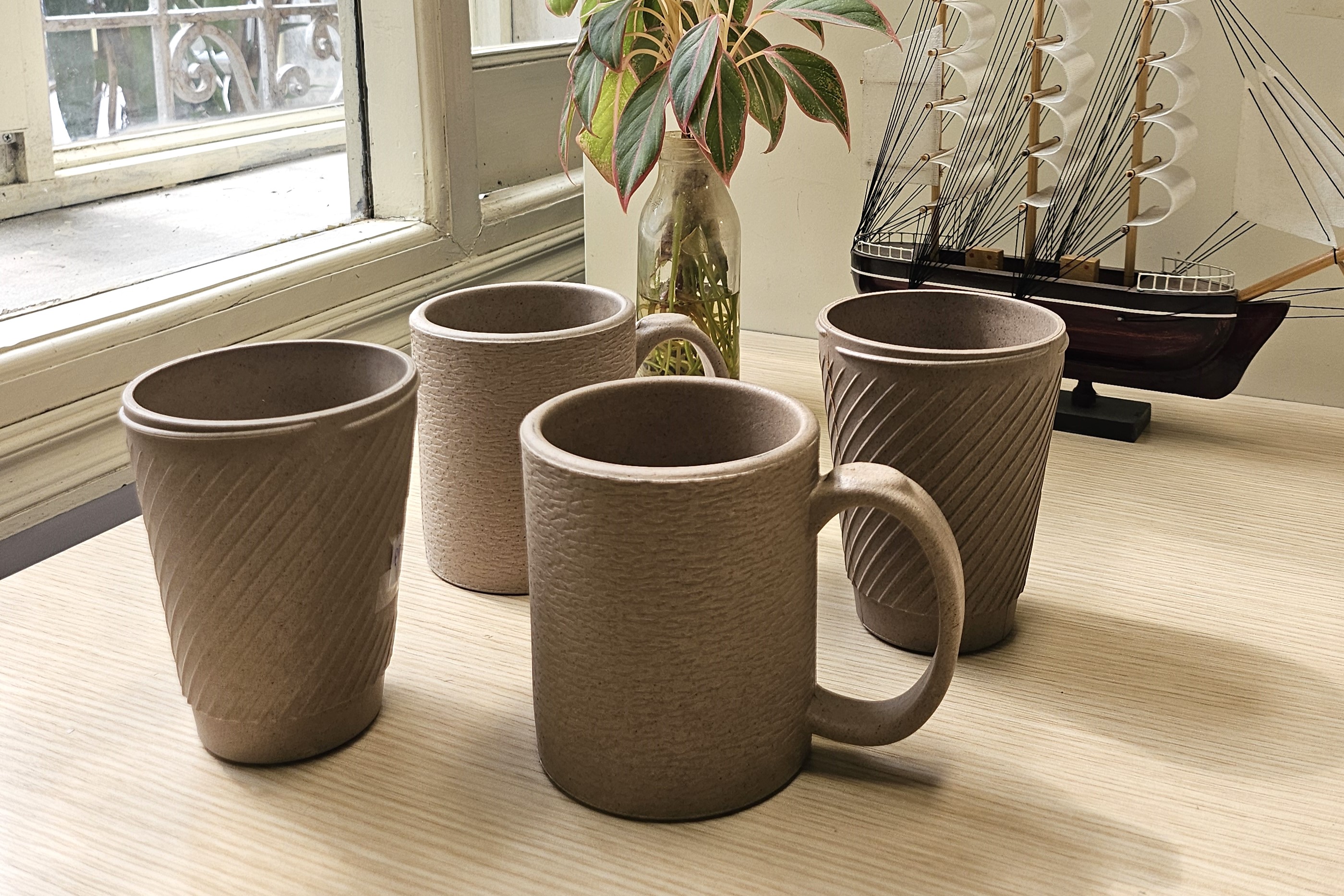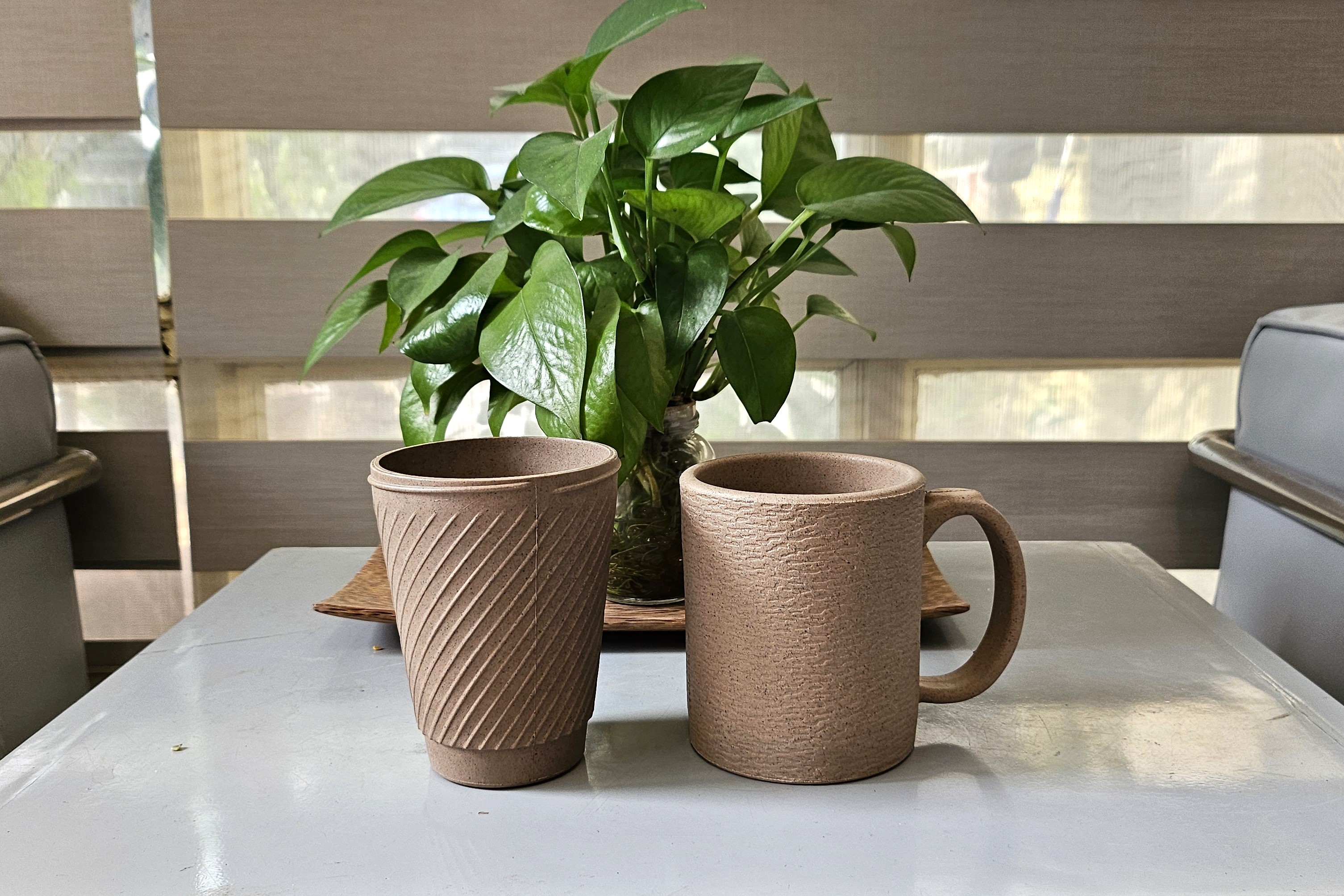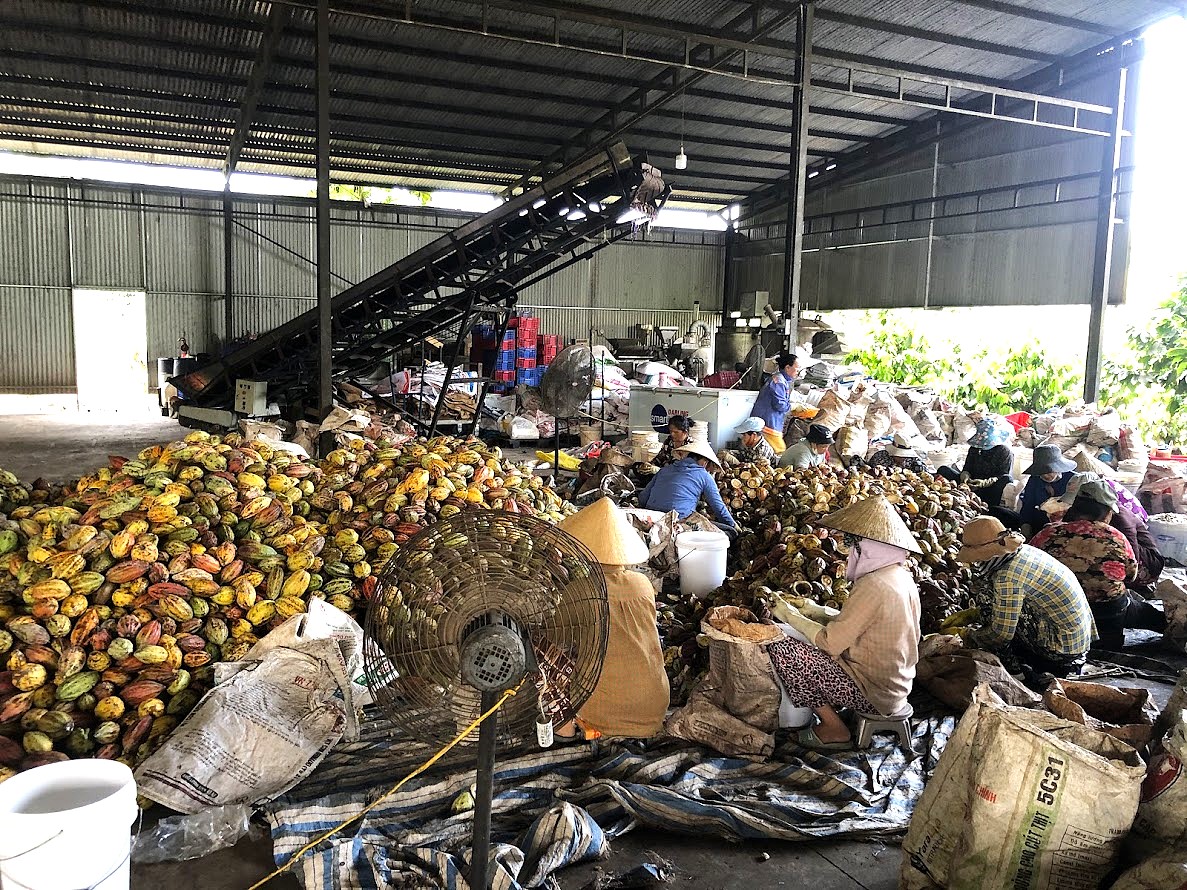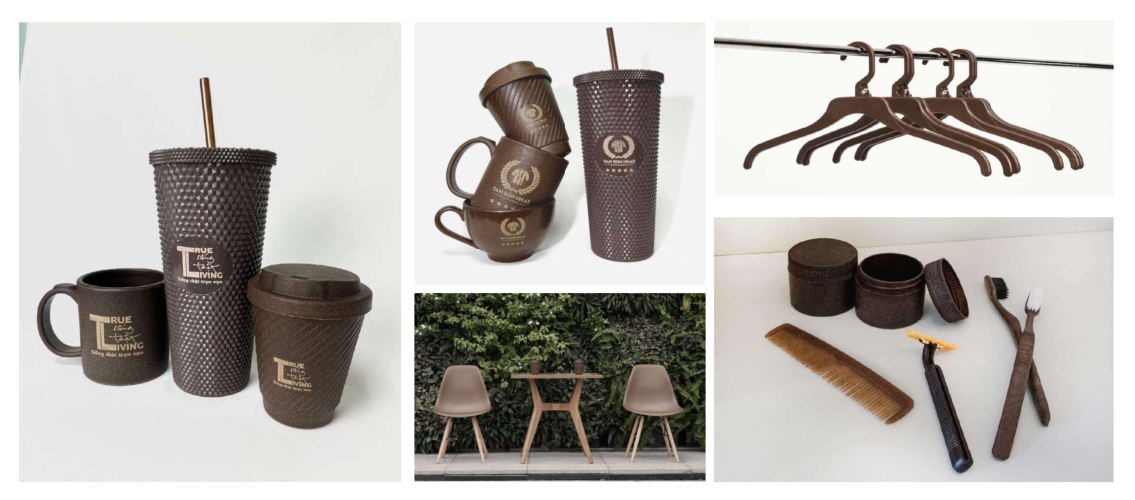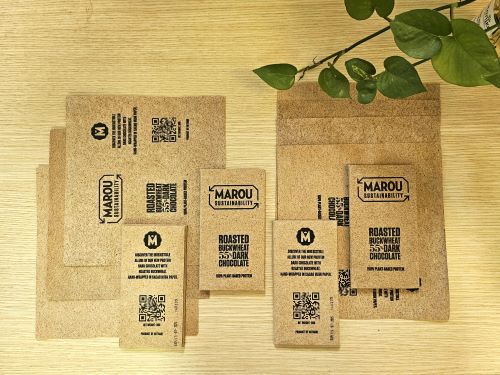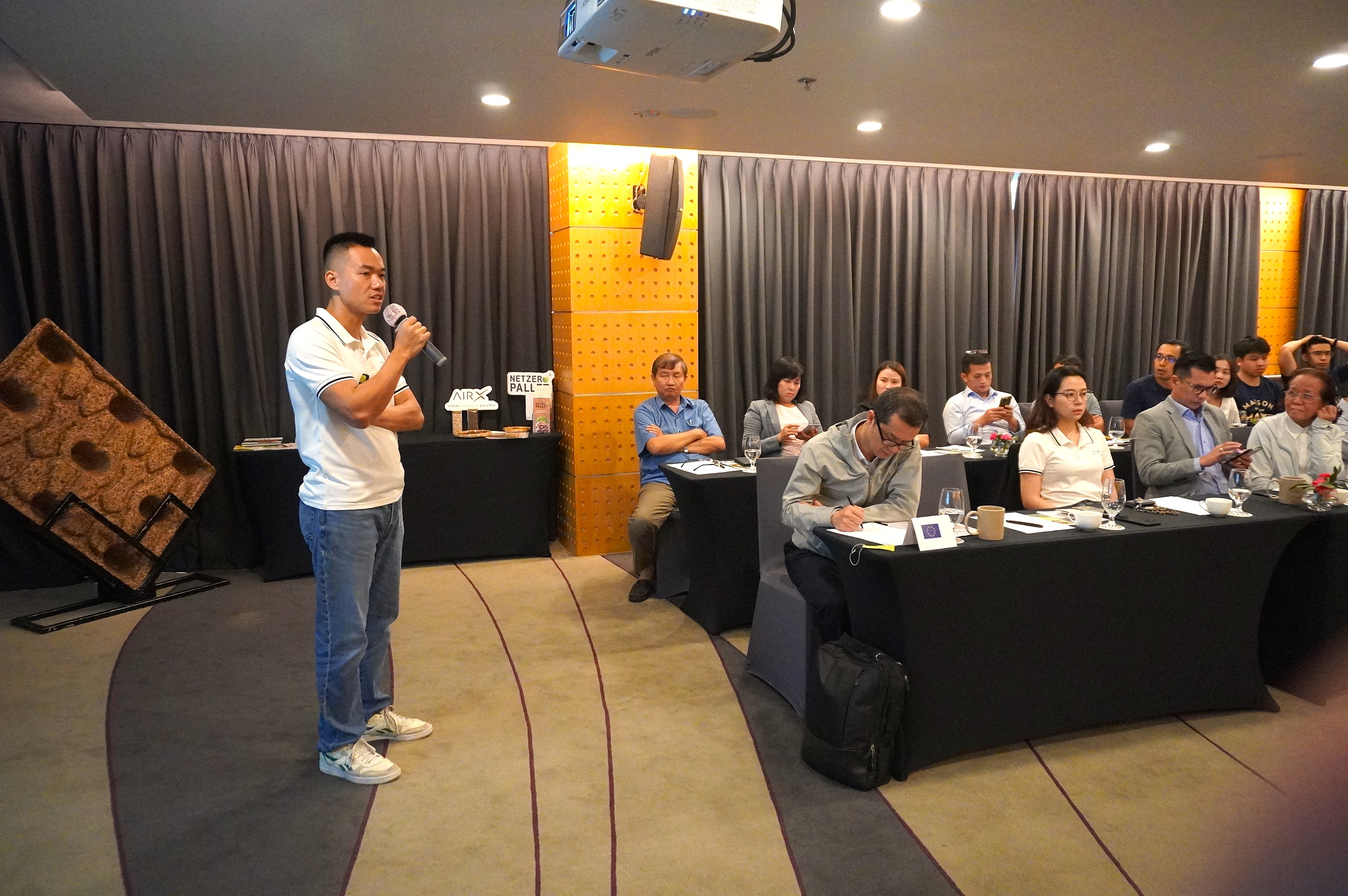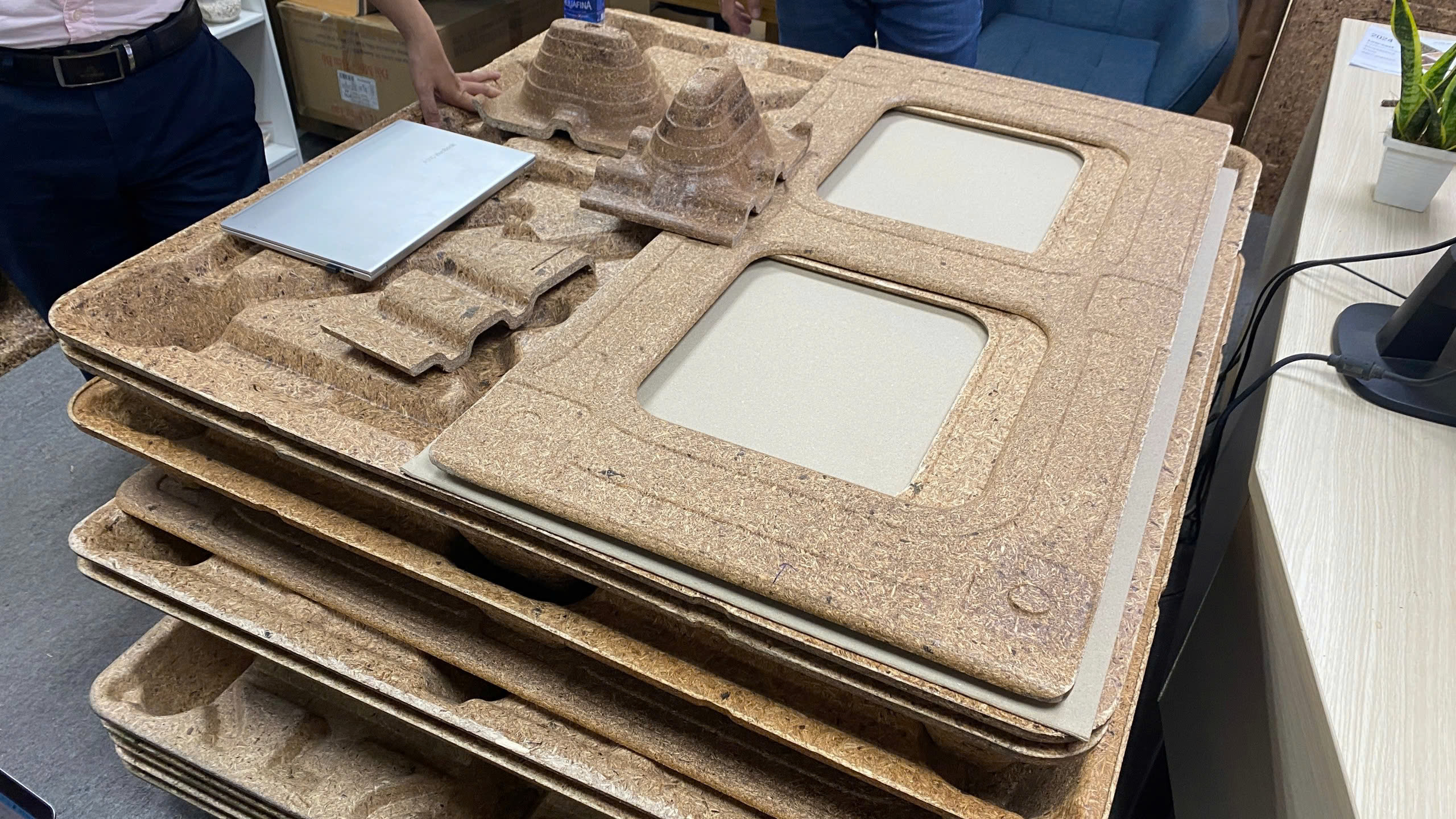Helvetas Vietnam, in partnership with AirX Carbon, is leading a pioneering initiative to transform cocoa husks into bioplastic materials, offering a sustainable solution to agricultural waste and plastic pollution.
The project, funded by the European Union under the 'Circular Economy Cocoa: From Bean to Bar' initiative (2022–2026), aims to address global environmental challenges while promoting circular economy practices in Vietnam’s agri-food sector.
Helvetas Vietnam, active in the country since 1995, is part of Helvetas Swiss Intercooperation, a leading Swiss development organization with over 65 years of global experience.
It works across sectors including agriculture, forestry, and rural economic development, with a focus on advancing sustainable and inclusive growth, climate change adaptation, and vocational skills enhancement.
Under the EU’s SWITCH-Asia program, Helvetas is implementing this €2 million (US$2.16 million) project in six to seven major cocoa-growing provinces across Vietnam’s Central Highlands and Mekong Delta regions.
The initiative focuses on creating biobased plastic granules from cocoa husk powder, which can be used in various consumer products and packaging.
Two bioplastics have been successfully developed: one based on polypropylene (Cocoa-PP) and another on polylactic acid (Cocoa-PLA).
These bioplastics offer environmentally friendly alternatives to petroleum-based plastics, with an emphasis on reducing waste and providing biodegradable packaging solutions.
|
|
| Cocoa-PLA mugs |
Circular economy approach tackles waste
Vietnam’s cocoa industry generates about 50,000 metric tons of cocoa husks annually, most of which are discarded or underutilized.
While some are repurposed for compost or animal feed, the majority contribute to environmental pollution.
As the industry grows, effective waste management and sustainable practices are becoming increasingly necessary.
“The project is not only tackling plastic pollution but also providing a solution for agricultural waste,” said Le Thanh, CEO of AirX Carbon.
“By incorporating up to 51 percent agricultural waste, these bioplastics reduce reliance on fossil fuels and offer a greener alternative to conventional plastic materials.”
|
|
| Workers extract cocoa beans from the husks at Trong Duc Company. |
AirX Carbon, recognized for its innovation in the bioplastics sector, has made significant advances in creating biodegradable and carbon-negative alternatives to traditional materials.
The Vietnamese company previously gained global recognition for creating the world’s first carbon-free biomaterial made from coffee grounds and continues to develop bio-based composites using agricultural by-products such as coconut shells, rice husks, and bamboo.
Cocoa-based bioplastics: A new sustainable solution
The Cocoa-PP and Cocoa-PLA bioplastics have been engineered to serve different markets.
Cocoa-PP, known for its rigidity and flexibility, is suited for durable, reusable products.
Cocoa-PLA is fully biodegradable, making it ideal for single-use items such as cups, trays, and straws.
The production process involves blending finely milled cocoa husk powder with either polypropylene or polylactic acid to form bioplastic granules, which are then processed using advanced extrusion technology.
The resulting products offer strong tensile strength and biodegradability, providing a viable alternative to conventional plastics.
|
|
| Pre-treatment process of cocoa husks to produce bioplastic |
The process is highly efficient, with trial yields reaching 95 to 97 percent from raw materials.
Strict quality control ensures the cocoa husk powder meets required standards for particle size and moisture content, resulting in high-quality bioplastics and minimal production waste.
Economically, both bioplastics are viable.
Cocoa-PP is cost-effective and well suited for reusable products, while Cocoa-PLA, though more expensive, meets rising demand for premium biodegradable options.
Production costs for a Cocoa-PP cup are approximately $1 (VND25,000), with a lifespan of five years, offering strong consumer value.
|
|
| Products from agri-based bioplatics by AirX Carbon |
Promising applications, future expansion
Beyond bioplastics, the project has developed biodegradable pallets made from cocoa shells.
These pallets offer a sustainable alternative to wood and help reduce deforestation.
These innovations were showcased at a workshop on March 6, where cocoa companies and cooperatives expressed strong interest in incorporating them into operations.
|
|
| Paper packaging made from cocoa waste |
The project is also exploring partnerships with companies such as Trong Duc Cocoa and Marou Chocolate JSC to pilot the bioplastics in real-world applications, including insulated cups and coasters.
This collaboration marks a key step toward integrating sustainable materials into the commercial market.
Helvetas and AirX Carbon continue to explore additional real-world applications for their bioplastics and are working to expand production, with the goal of advancing sustainable packaging solutions.
|
|
| Le Thanh, CEO of AirX Carbon, speaks at a workshop, March 6, 2025. |
Towards a circular economy in Vietnam
The collaboration between Helvetas Vietnam and AirX Carbon demonstrates the potential of circular economy principles in transforming agricultural waste into valuable materials.
By converting cocoa husks into high-performance bioplastics, the initiative supports sustainability in the cocoa supply chain while positioning Vietnam as a leader in green innovation.
|
|
| Cocoa-based pallets. |
“With this project, we aim to reduce agricultural and plastic waste while creating new economic opportunities for farmers,” said Nguyen Dinh Tuan, manager of the Circular Economy Cocoa Project at Helvetas Vietnam.
“By repurposing agricultural byproducts, we are not only reducing environmental impact but also increasing the value of what was once considered waste.”
This project presents a strong model for sustainable development, showing how agricultural byproducts can be transformed into eco-friendly alternatives to plastic.
With positive results and scalable production, the initiative offers a practical pathway to reduce pollution and promote circular economy practices, both in Vietnam and globally.
Like us on Facebook or follow us on X to get the latest news about Vietnam!



